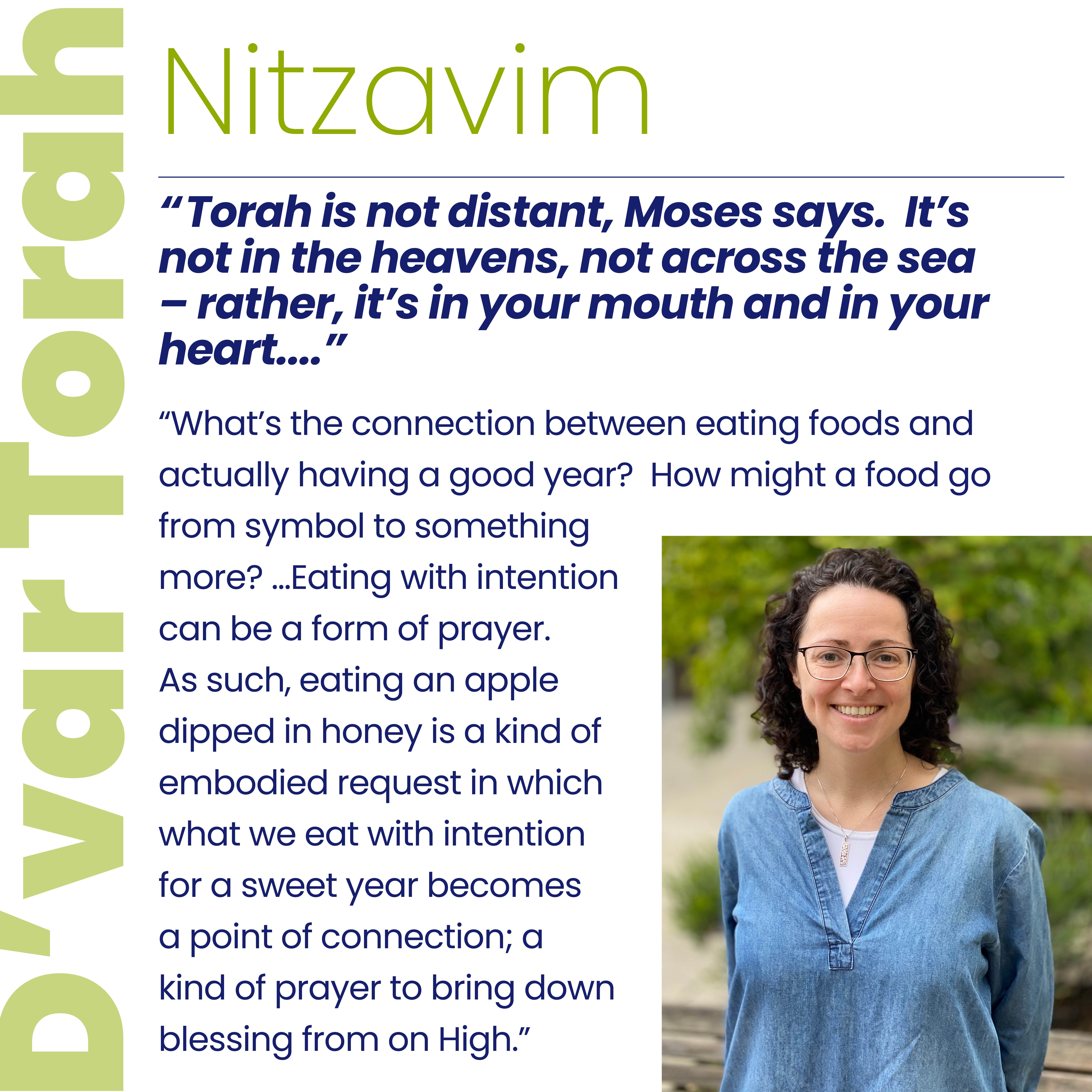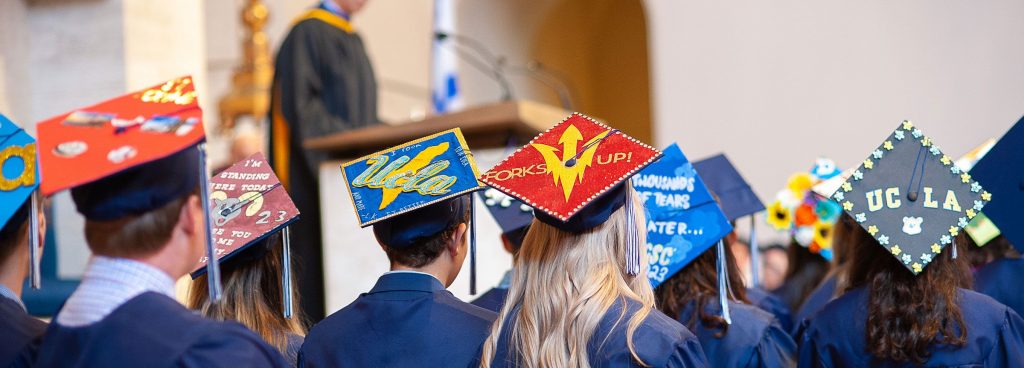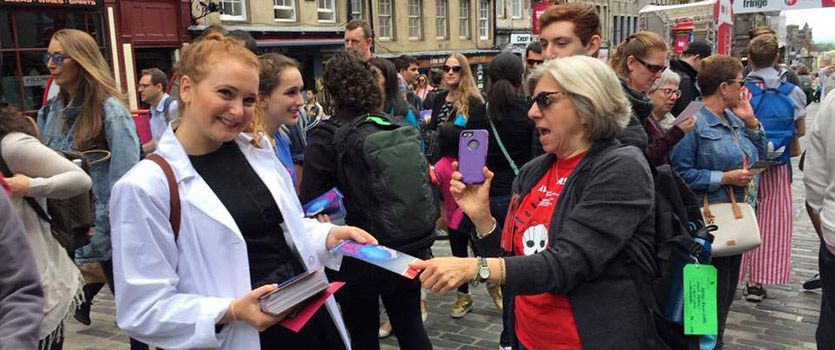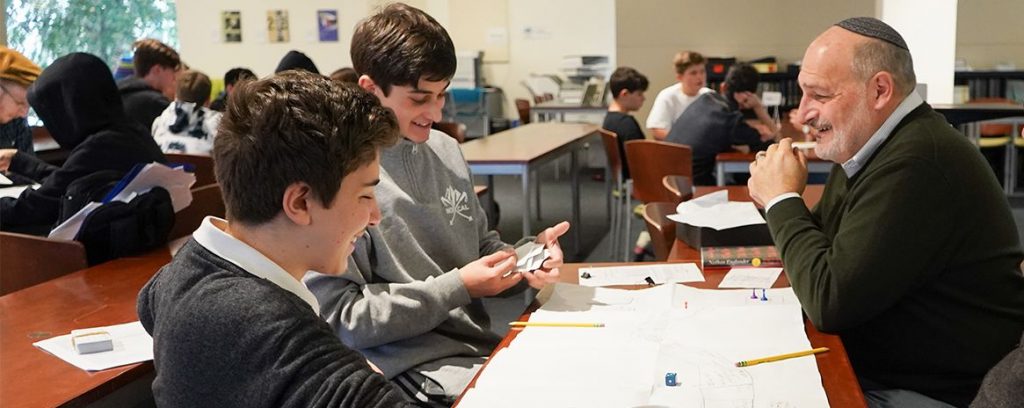Raizy Lichtenstein, Jewish Studies Teacher
The book of Deuteronomy is, above all, a collection of Moses’s final words to the Jewish nation, whom he has led from Egypt to the border of Israel. Moses employs many educational strategies in an effort to encourage the nascent Jewish nation to maintain connection to each other and to God in the years (and millenia) to come. He instructs, teaches, reteaches, cajoles, pleads, and reminds his listeners: Remember your shared history! Read the Torah! Live by its teachings! Over and over, he repeats: There is danger in forgetting your story of origin and your shared values.
I want to share the most unusual of Moses’ exhortations, which appears in this week’s Parasha, Nitzavim. The gist of his argument? Stay close to the teachings of the Torah because it’s so accessible!
(יא) כִּ֚י הַמִּצְוָ֣ה הַזֹּ֔את אֲשֶׁ֛ר אָנֹכִ֥י מְצַוְּךָ֖ הַיּ֑וֹם לֹא־נִפְלֵ֥את הִוא֙ מִמְּךָ֔ וְלֹ֥א רְחֹקָ֖ה הִֽוא׃ (יב) לֹ֥א בַשָּׁמַ֖יִם הִ֑וא לֵאמֹ֗ר מִ֣י יַעֲלֶה־לָּ֤נוּ הַשָּׁמַ֙יְמָה֙ וְיִקָּחֶ֣הָ לָּ֔נוּ וְיַשְׁמִעֵ֥נוּ אֹתָ֖הּ וְנַעֲשֶֽׂנָּה׃ (יג) וְלֹא־מֵעֵ֥בֶר לַיָּ֖ם הִ֑וא לֵאמֹ֗ר מִ֣י יַעֲבׇר־לָ֜נוּ אֶל־עֵ֤בֶר הַיָּם֙ וְיִקָּחֶ֣הָ לָּ֔נוּ וְיַשְׁמִעֵ֥נוּ אֹתָ֖הּ וְנַעֲשֶֽׂנָּה׃ (יד) כִּֽי־קָר֥וֹב אֵלֶ֛יךָ הַדָּבָ֖ר מְאֹ֑ד בְּפִ֥יךָ וּבִֽלְבָבְךָ֖ לַעֲשֹׂתֽוֹ׃ {ס}
Surely, this Instruction which I enjoin upon you this day is not too baffling for you, nor is it beyond reach. It is not in the heavens, that you should say, “Who among us can go up to the heavens and get it for us and impart it to us, that we may observe it?” Neither is it beyond the sea, that you should say, “Who among us can cross to the other side of the sea and get it for us and impart it to us, that we may observe it?” No, the thing is very close to you, in your mouth and in your heart, to observe it.
(Deuteronomy 30:11-14).
Torah is not distant, Moses says. It’s not in the heavens, not across the sea – rather, it’s in your mouth and in your heart.
As parents, teachers, educators, and students at JCHS, we are all involved in the experience of trying to relate to Judaism in a meaningful way in our contemporary lives. Sometimes we talk about that task as if it is something daunting: how to relate to ancient texts, to a huge and varied nation, and to the complexities of our contemporary Jewish selves and experiences. The ease that Moses describes feels entirely out of reach; perhaps even beyond the sea!
But something happened today in my L’chaim class that made me read this verse quite literally and more optimistically. We were discussing the special foods that many people eat on Rosh Hashanah. Ms. Malkah Javanifard shared with the students her family’s Iranian/Persian-Jewish heritage, and described ways in which her grandfather kept alive the Talmudic tradition of eating special Rosh Hashanah foods such as dates, leeks, and black-eyed peas, each with a different blessing for a good new year.
Lily T. asked, what’s the connection between eating foods and actually having a good year? How might a food go from symbol to something more?
Students considered this question from a number of thoughtful angles. I’d like to share an approach that Shoshi C-R suggested: Eating with intention can be a form of prayer. As such, eating an apple dipped in honey is a kind of embodied request in which what we eat with intention for a sweet year becomes a point of connection; a kind of prayer to bring down blessing from on High.
I can’t think of a better exemplification of Moses’s positive approach to continued Jewish engagement than this: When the food in our mouths is combined with the intention in our hearts, our connection to God is not so far away at all.
Wishing you a Shanah Tovah Umetukah: a sweet new year, filled with every blessing!










